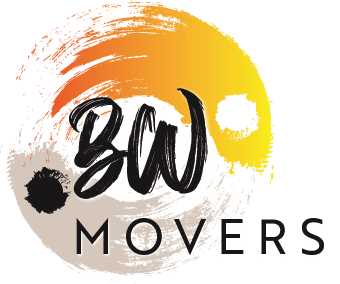“Logistics Service” is not an uncommon phrase, but do we really know what it all entails? As individuals in our personal capacity, we would normally associate it with a service that you would use to move to a new house or collect debris from a construction site, but in actual fact it is far more than that.
So, aside from what we would typically think of when we hear the words logistic services, what is it exactly?
Logistics is the detailed organization and implementation of many complex operations, especially in businesses. In short, it is the management of the flow of the things that are supposed to happen between point A and point B.
The items that are managed in logistics can include:
- The Movement of items such as food or materials.
- The movement of heavy machinery and equipment.
- The movement of chemicals and liquids.
- The correct handling of materials.
- Production and packaging.
- Inventory control and transportation.
- Warehousing and security.

The Science of Moving Between A and B
Even though you need not be a scientist, logistics services is a science! There are so many procedures that need to happen in-between the manufacturing of products up until the final stages where they are delivered to suppliers and customers.
Initially products need to be sent to a warehouse to wait until an order has been placed by a customer. Sometimes these products may spend a long amount of time in these warehouses.
Once the order for the product has been placed then it is time to arrange for the most suitable means of transportation in order to deliver the product. There are so many elements to this process and each step has to be performed effectively in order to achieve total success.
Types of Logistics Services
When a client makes use of a logistics service provider, they are essentially hiring the logistics company to oversee all matters that pertain to the smooth movement of these goods and products.
Let’s look at some of the types of logistics services.
# 1 Inbound Logistics
This is one of the most primary processes of logistics and deals with the purchasing and arranging of any materials, supplies, chemicals, and parts from suppliers to manufacturers.
If your business has a sound inbound logistics process, they are able to restock their fast selling items in time as well as introduce new products to their customers.
# 2 Outbound Logistics
This part of the logistics service refers to the movement and storage of the end product. The information needed for this process has to flow from the end of the production line right up until the consumer receives the product.
Supply chains need to have an efficient outbound logistics network as finished goods and products require a lot of movement throughout the supply chain until they finally reach their destination.
# 3 Procurement Logistics
Procurement logistics consists of activities such as market research, planning, production, buying decisions, management of suppliers, ordering and controlling of the orders.
Basically, procurement logistics is the sourcing of materials that re needed to manufacture products. This type of service within the supply chain focuses mainly on the purchase of raw materials, operating supplies and other supplies that are needed in order for the manufacturing process to work optimally.
# 4 Distribution Logistics
The main function in this process is the delivery of the finished product to the customer. This type of logistics is essential because of the fact that the time needed, and quantity of the product can sometimes tend to differ from the quantity of the consumption of the product. It consists mainly of order processing, warehousing, and transportation.
# 5 Disposal Logistics
This service’s main function is to reduce the costs of logistics as well as dispose of the waste that can be produced when a business is fully operational.
Disposable Logistics include but are not limited to:
- The disposal of hazardous waste and chemicals that can lead to injury and even death.
- Solutions to protecting the environment in which these chemicals are stored.
- Renovations that make use of asbestos.
- Demolition work removal at building sites.
- Destruction of sensitive company data.
# 6 Reverse Logistics
This refers to operations that are related to the reuse of many materials and products. It includes management and sales of the surplus product as well as returns to suppliers from consumers.
Reverse logistics can also be a term used for the reuse of products through the process of planning, implementing, and controlling the flow of raw materials and finished goods from their point of consumption to their point of origin.
# 7 Asset Control Logistics
Businesses that form part of retail channels often use logistics services to deploy assets that are required for the display and promotion of their products. These can include refrigerators, stands and display monitors.
# 8 Production Logistics
Production logistics is the process in which a supplier aims to make sure that every machine and workstation receives the correct product in the right quantity while still making sure that everything is done within the right time frame.
Production logistics are able to operate in existing as well as new plants due to the fact that the manufacturing in an existing plant can be a constantly changing process.
# 9 Construction Logistics
Construction logistics forms a vital part of the construction industry and can sometimes become a completely different field of knowledge within the function of supply management and logistics.
In short Construction Logistics is an industry-led programme that was developed to reduce the negative effects of construction materials that can often result in safety hazards and congestion.
# 10 Digital Logistics
This type of logistics was started by an all-new generation of web-based businesses that allows for the collaboration and optimization of products across supply chains.
Digital logistics takes traditional manual data collection which is often susceptible to human error and digitalizes is in order to improve the expedition of all logistics processes, systems and strategies.
It has the ability to automate routine transactions along the logistics chain and create an opportunity for your organization to save money on operating expenses while at the same time increase data transparency for all who are involved in the supply chain management and operations.

Logistics Consultancy Services
A logistics consultancy service is what a company would use to assist within a variety of sectors so as to improve their customer service operations and offer cost-effective solutions enabling them to handle their supply chain, warehousing, materials, and distribution.
Logistic consultancy services are able to analyse data and information so as to identify and correct any operating problems. They do this by making use of information technology, planning, and re-engineering processes to as to improve the overall efficiency of the company that they are consulting for. As a result, this can improve profit and substantially prevent losses.
These consultants are also able to offer advice on quality control, productivity, transportation, storage, and packaging.
Logistics Planning and Management Services
Logistics planning
Logistics planning is theart of ensuring that logistics services for companies adhere to highest service levels at the lowest cost.
It also involves ensuring that a business plan continues to remain viable by making sure that all logistical needs are seen to and that a plan has been put into place in order for the logistics manager to follow.
The requirements needed by the client from a logistics service are as follows:
- Products needs to be of acceptable quality after all of the logistics have been dealt with.
- Products need to be supplied in the correct quantity so as to avoid price inflation and storage costs.
- Logistics need to be at the right place at the right time, meaning lower storage costs while at the same time meeting both customer and supplier needs.
- Efficient pricing is critical. Remember that a good level of service is not always going to be the cheapest.
Logistics Management
Logistics management is an absolutely necessary process in the supply chain field as it is a way of fulfilling customers’ needs and demands by means of planning and control. This is done by managing the complete flow of goods during the logistics process.
This management provides information on the movement of raw materials as well as inventory control. It is a way to track the movement, location, and quality of the inventory during the logistic process therefore escalating customer satisfaction.

Logistics Integrated Services
An Integrated Service Provider is a company that you would usually hire to perform a variety of logistical services.
These services often include:
- Warehousing services.
- Transportation services.
- Maintenance and Repair services.
- Operation Services.
BW Movers has a successful sister company that deals in efficient event management, so we know how to handle the ins and outs of logistics and successful management of products and supplies.
We are able to help you with any move, from home moving to logistical movement and management. Our friendly and efficient staff will assist you to make sure that no matter how intricate the move, your logistical endeavor will be a success!
